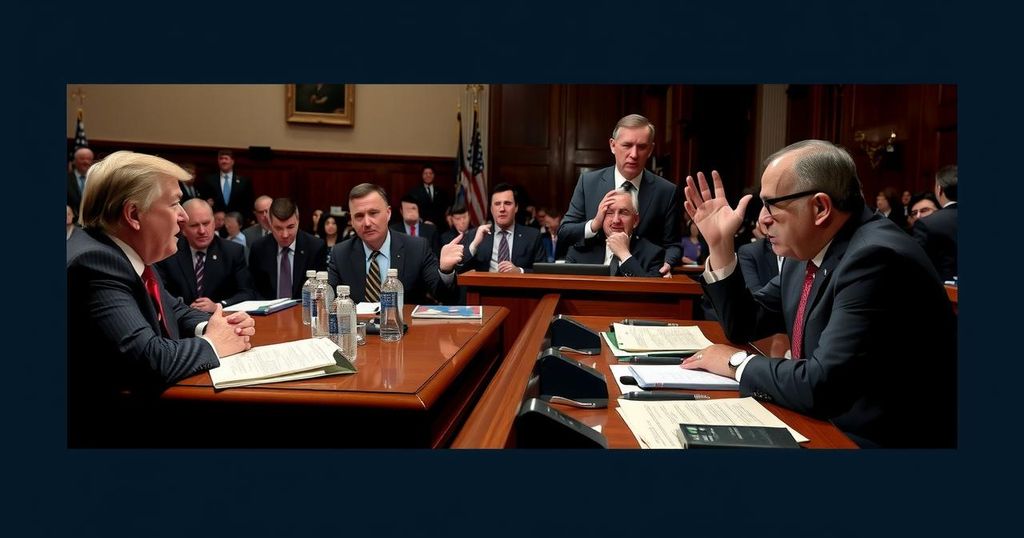Secretary of State Antony Blinken testified before Congress regarding the controversial U.S. withdrawal from Afghanistan, facing stark criticism from Republicans. Congressman Michael McCaul articulated harsh judgments about the withdrawal, labeling it a failure of foreign policy. While Blinken defended the administration’s actions as necessary following Trump’s withdrawal deal, the testimony comes amid extensive allegations of systemic failures in U.S. leadership over the years.
On Wednesday, Secretary of State Antony Blinken appeared before the House Foreign Affairs Committee to address criticisms surrounding the U.S. withdrawal from Afghanistan. Highlighting the event’s gravity, Congressman Michael McCaul of Texas characterized it as “the beginning of a failed foreign policy that lit the world on fire,” urging Blinken to accept responsibility for the withdrawal’s disastrous consequences. Throughout his testimony, interruptions arose from demonstrators expressing their outrage and pain, particularly families of U.S. forces affected during this turbulent period.
In his defense, Blinken reiterated that the withdrawal was heavily influenced by a deal made by former President Trump with the Taliban. He indicated that doing otherwise would have led to an escalation of violence, stating, “To the extent President Biden faced a choice, it was between ending the war or escalating it.” He asserted that adhering to the withdrawal agreement was crucial to preventing further assaults on U.S. personnel.
The testimony follows a critical report from House Republicans blaming the Biden administration for shortcomings related to the withdrawal, while minimizing Trump’s role within the events leading to the chaotic exit. The report outlined failures in both military and civilian responses and noted that the Taliban rapidly capitalized on the situation, seizing control before the final evacuation on August 30, 2021. Previous assessments have suggested that the failures were systemic and involved multiple presidential administrations, attributing significant responsibility to both Biden and Trump.
The complexities surrounding the U.S. withdrawal from Afghanistan have been the subject of intense scrutiny following one of the most tumultuous military exits in American history. This withdrawal was characterized by a rapid Taliban advance that culminated in their capture of Kabul and led to chaotic scenes as American citizens and Afghan allies scrambled to escape. The aftermath has raised questions about decision-making processes across multiple administrations, revealing critical flaws that contributed to the situation. Reports from Congress have aimed to dissect these failures, attributing blame and accountability to specific leaders and their policies regarding the United States’ long military engagement in the region.
Secretary of State Antony Blinken’s testimony highlights the contentious nature surrounding the U.S. withdrawal from Afghanistan, as he faces fierce GOP criticism for the perceived failures of the Biden administration. The discussion casts a broader shadow over the consequences of past administrations’ policies and decisions. Ultimately, while the Trump-negotiated withdrawal deal significantly influenced the exodus, both the Biden and Trump administrations share considerable liability for the chaos that unfolded, bringing to light the complexities and challenges of American foreign policy in volatile regions.
Original Source: www.news-herald.com






